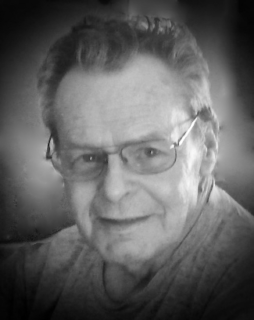Article begins

Image description: A man wearing glasses smiles for the camera. Only his face and shoulders are visible.
Caption: Roderick Earl Burchard
1935–2018
Roderick (Rod) Earl Burchard, a cultural anthropologist known for his groundbreaking analyses of coca chewing in the Andes of South America, passed away on December 21, 2018, in Victoria, British Columbia. Burchard was born September 9, 1935, in Granville, Ohio, to Frederick Burchard and Mary Yingling Burchard. His spouse, Andrea Foster Burchard, sister Diane, sons John and Paul Burchard, and four grandchildren survive him.
Burchard received his BS degree in history and sociology in 1963 from Bemidji State University; an MA in Latin American studies in 1966 from Indiana University; and a PhD in anthropology under the supervision of Paul Doughty in 1976 from Indiana University. From 1956 through 1960 Burchard was a meteorologist stationed in the Pacific with the Sixth Weather Squadron Mobile, US Air Force, and in 1961 through 1962 as a meteorologist in the US Manned Space Vehicle Program. From 1963 to 1965, he was a Peace Corps volunteer, serving in a community development program in Ica, Peru, where he met his future life partner, Andrea (Andy) Foster Burchard. While there, he became intrigued by the role of coca chewing in the lives of Andean peasantry. Burchard taught at the University of Manitoba, 1971–1996.
Paul Doughty recalls, “In a 1968 incident in Peru, the ‘reigning scholar’ John Murrra had to admit Rod really knew what he was talking about. Rod’s study was unique in that he studied the producing village and the consuming one that traded for the leaf”. Tom Shay writes, “Rod’s research on coca use among Andean peasants was groundbreaking. At the time when coca’s commercial derivative cocaine was widely outlawed, Rod showed through careful research that coca chewing was actually beneficial—an unwelcome message for drug enforcers”. Ralph Bolton says, “I knew Rod because we had Paul Doughty in common and also a mutual interest in coca research. We both were interested in biocultural dimensions of coca usage in the Andes, although I think he thought I was wrong about my hypotheses. But both of us came to the same conclusion that coca use was beneficial in the highland context and both of us defended its continued use despite widespread condemnation by officialdoms for centuries”. Allan Burns writes, “Rod was a real scholar; he read widely, not only on Peru, but in all areas of anthropology. I remember well discussing with him an article about heat stress among Maya farmers that he found truly inspiring. Although not well known, Rod had read it and pulled out of it some truly remarkable insights into how culture, environment, and biology work together. His enjoyment of word play, anecdotes, and elaborate stories of his fieldwork were always told with a twinkle in his eye and a smile that seemed to say ‘I hope you get this!’”
Burchard’s insights into the connections between coca use and nutrition have influenced many anthropology colleagues. He was well read, venturing into all kinds of literature to unravel the mysteries of coca leaf use. He had a brilliant mind, teaching himself all about biochemistry and pharmacology, but had a hard time harnessing all of his research interests and committing to a “finished” text. Indeed, the capstone work of his career—his last major article prepared for Current Anthropology in 1992—was submitted prior to his final approval based on the judgement of the department head, the dean, and a colleague from another university. Burchard was reservedly relieved, especially after the article appeared in print shortly after submission.
(Raymond E. Wiest)
Cite as: Wiest, Raymond E. 2020. “Roderick Earl Burchard.” Anthropology News website, June 12, 2020. DOI: 10.1111/AN.1424

